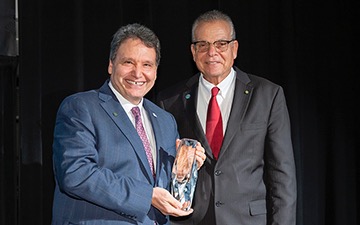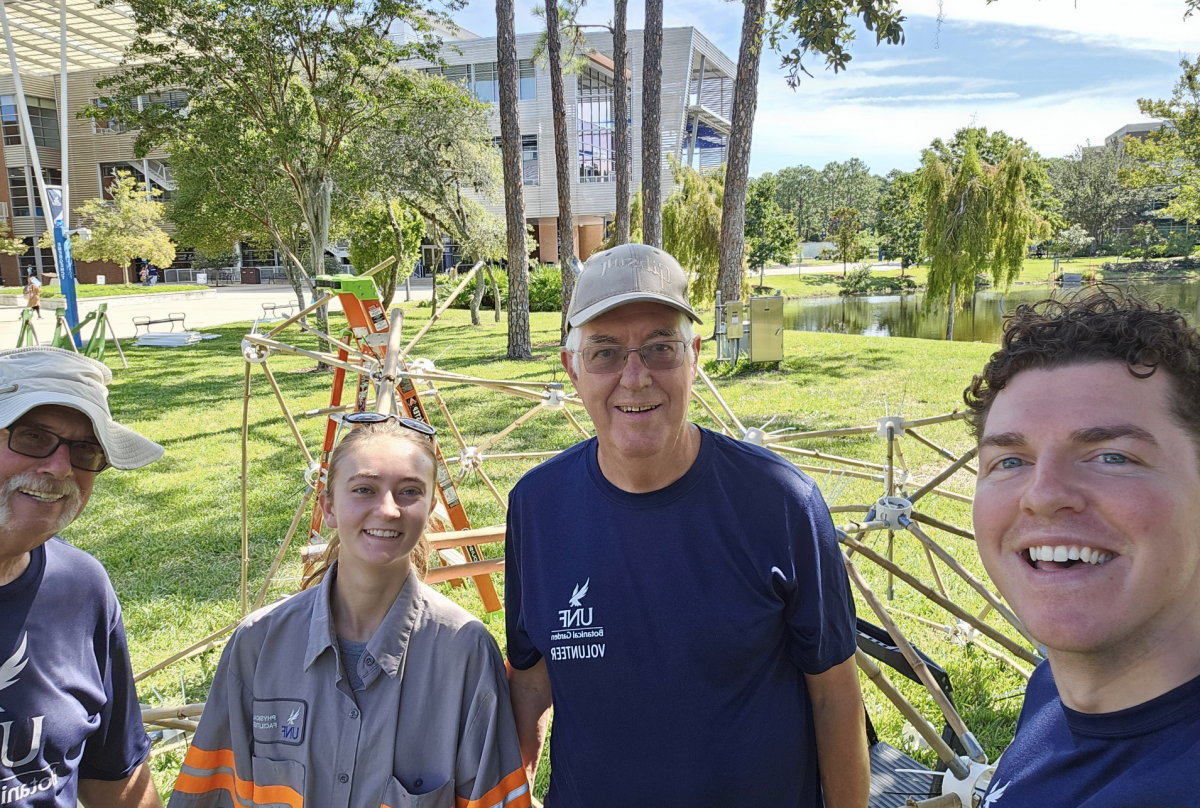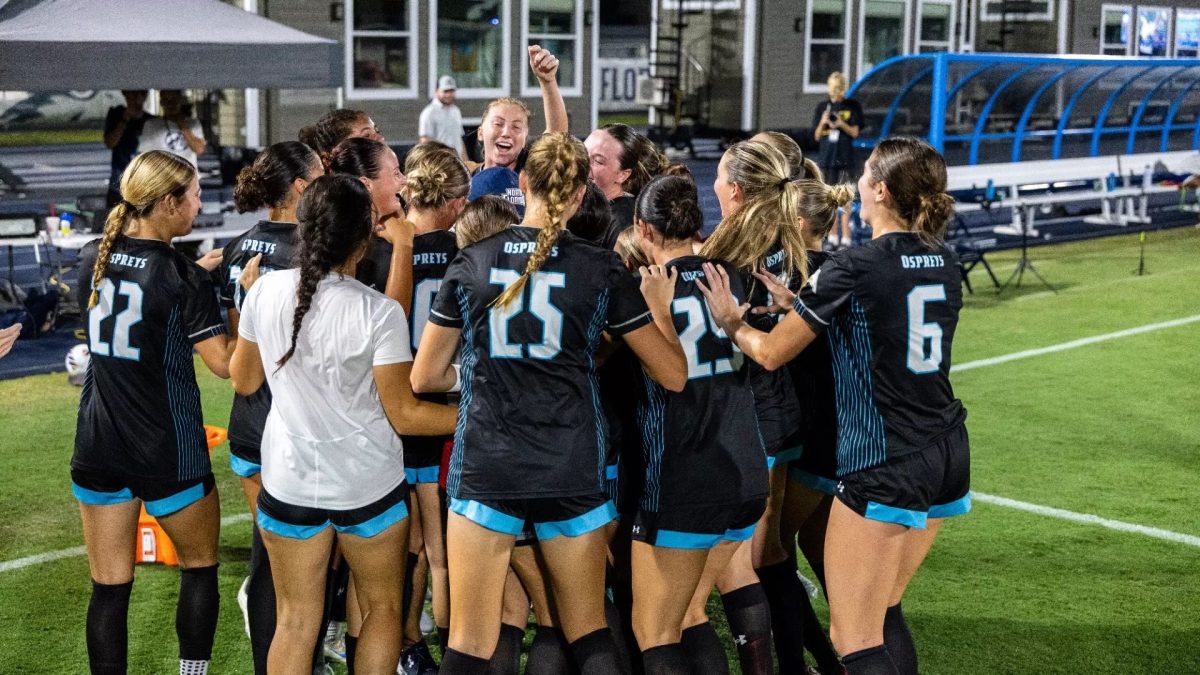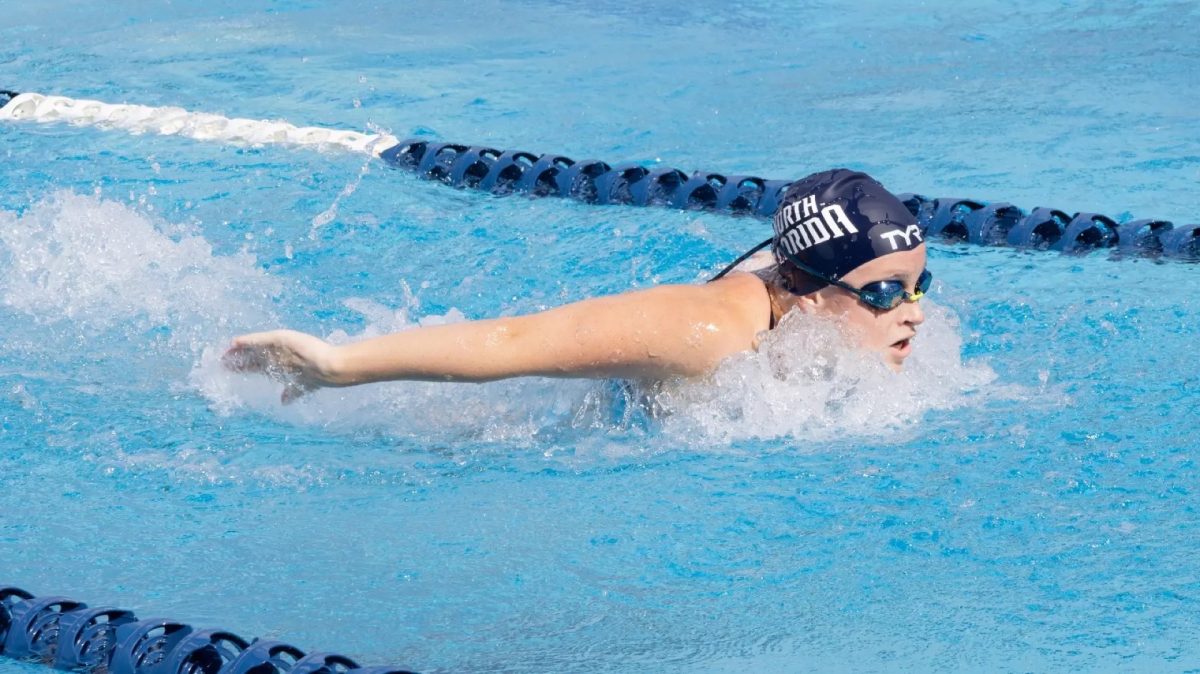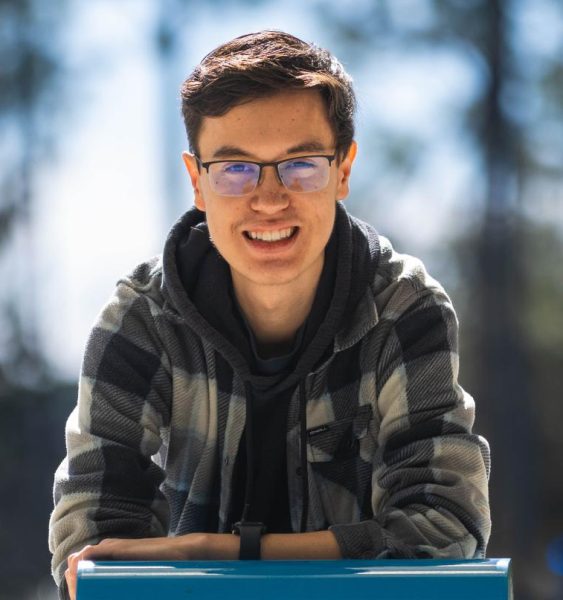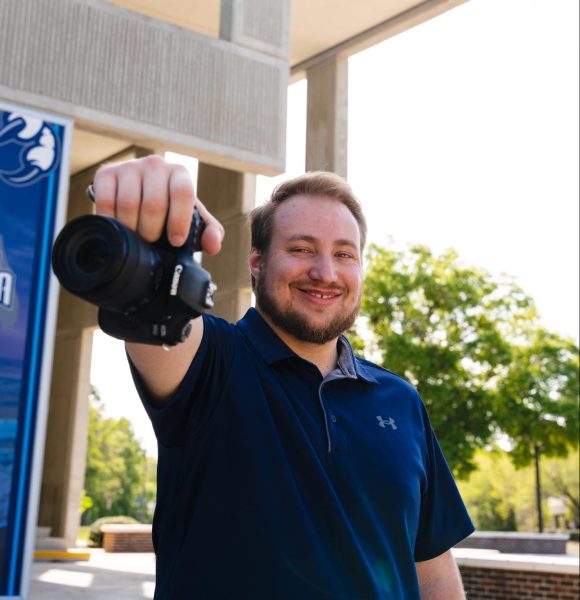Recycling bins are disappearing across UNF’s campus while campus officials hasten to establish a new method after Jacksonville suspended recycling pick-ups. Suffering a nationwide labor shortage due to the COVID-19 pandemic has drastically affected waste and recycling processes at UNF as well.
“We are handling recycling a little differently, but that won’t look much different to the campus. Other than that, we are not— the bottles and cans are being thrown away, they don’t want them,” Robert McCraken, UNF Physical Facilities Manager, told Spinnaker. McCraken oversees the waste and recycling process on campus.
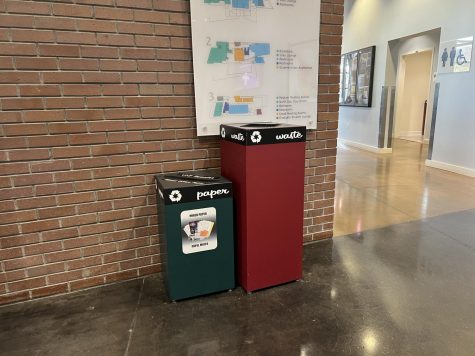
In the past, McCraken said that UNF had everything recyclable go to the compactors, but have since moved away from that. Now, he says that the university is in the process of “thinning out” the designated can recycling bins from inside campus buildings, but outside bins will remain as is to prevent trash overflow.
McCraken also mentioned that UNF is still recycling office paper and cardboard to be scheduled for pick up. However, UNF also houses thousands of students that produce a seemingly immeasurable amount of waste each day.
Spinnaker also spoke with the Senior Director of Housing and Residence Life Robert Boyle, who said that every dumpster in housing right now is being “gobbled up” because of the sheer amount of waste that residents are producing.
“Right now we’re trying to figure out how we maneuver within a new reality,” he remarked.
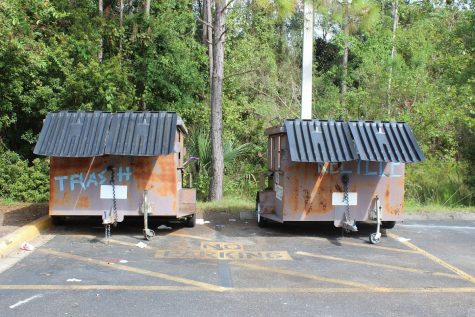
Boyle said that he and his employees work closely with McCraken, and other officials across campus, and as they collect cardboard they would deposit it into UNF’s recycling compactors.
When discussing the reason for this recent issue, Boyle said that he thinks that “the hard part is that the market for recycling has essentially dried up. China and others are not purchasing it like they used to.
“We were certainly at a point of one time of being buying into the sole, single source, recycling which was a great approach, but if nobody wants to buy it off of entities that collect it, it makes it tough.”
At the time of writing, there are no specific instructions for residents on campus to do differently yet, but Boyle mentioned that a discussion is ongoing. Currently, he said that there is no recycling from Housing going into compactors:
“All of our [recycling] that we’re collecting at the moment, it’s trash going to presumably a landfill.”
He noted that this was not desirable for him nor UNF but assumes that there’s a portion of the population that is conscientious of their recycling practices.
As for now, Boyle said that the plan is to find a “feasible” method to get any cardboard coming to Housing to end up at the university’s recycling compactors. Housing, according to Boyle, has trash compactors but not its own recycle compactors.
“It’s hard to tell people to save [cardboard] for now. . . I would encourage if people that are very keen into it, and want to recycle sooner rather than later, they can use these drop-off locations around town. So that’s one thing,” Boyle recommended.
Sites are open from sunrise to sunset, Monday through Sunday, at no cost.
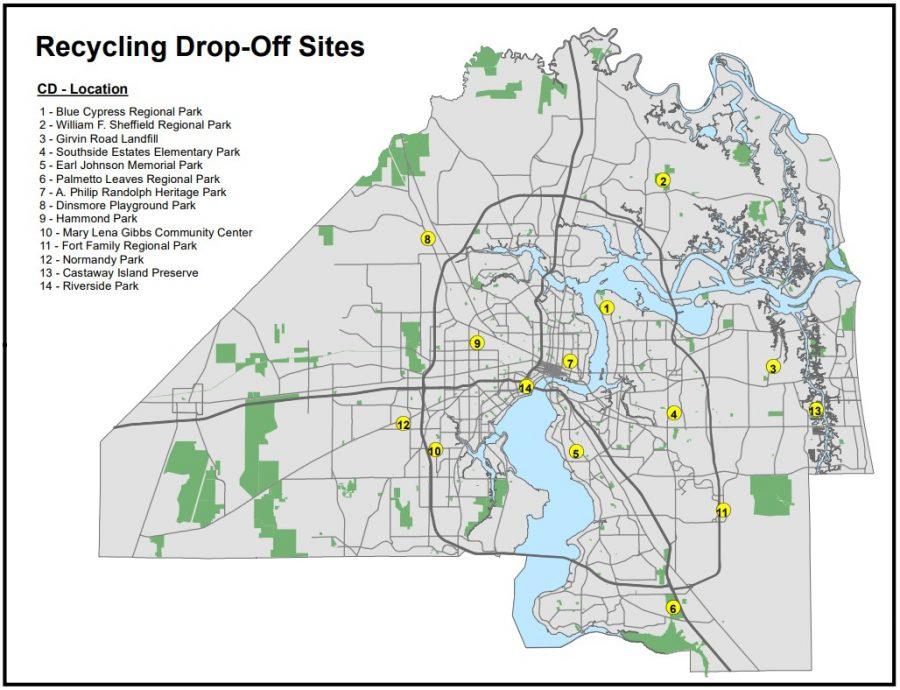
UNF gave the following statement on the topic:
“The University continues to run a recycling program. Due to evolving market conditions and the changing recycling landscape, certain items are no longer being accepted by our waste hauler for recycling.”
For the time being, recycling at UNF is uncertain as campus officials work to cobble together a new plan. Time will tell if recycling will make its return to the university sooner rather than later.
___
For more information or news tips, or if you see an error in this story or have any compliments or concerns, contact editor@unfspinnaker.com.










